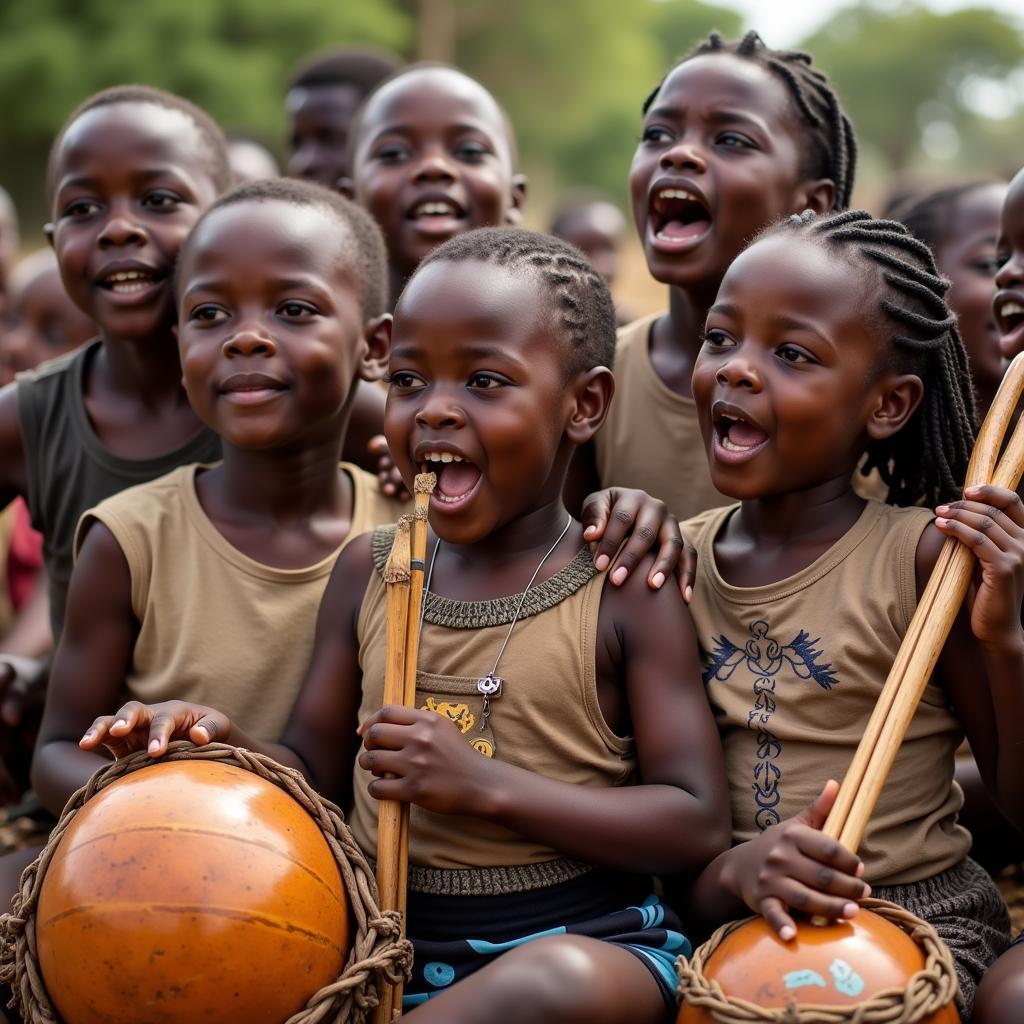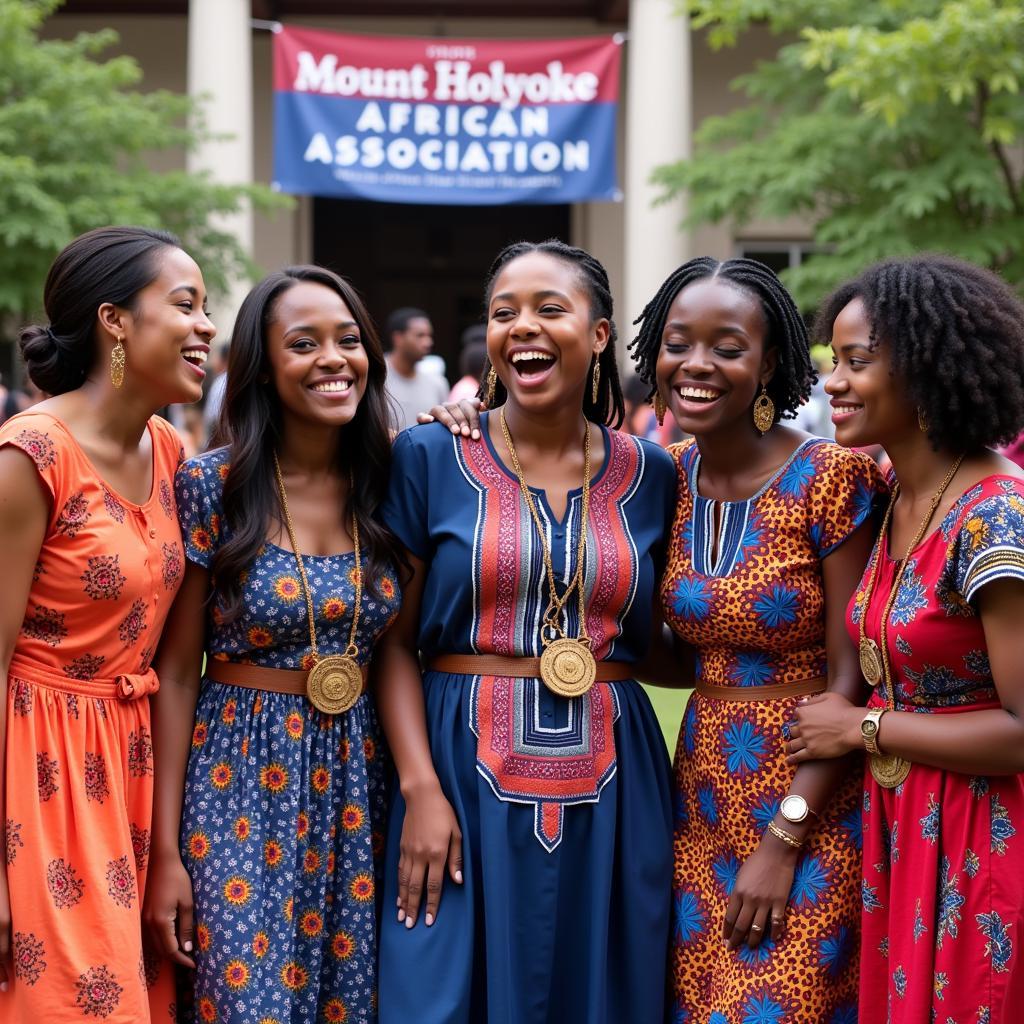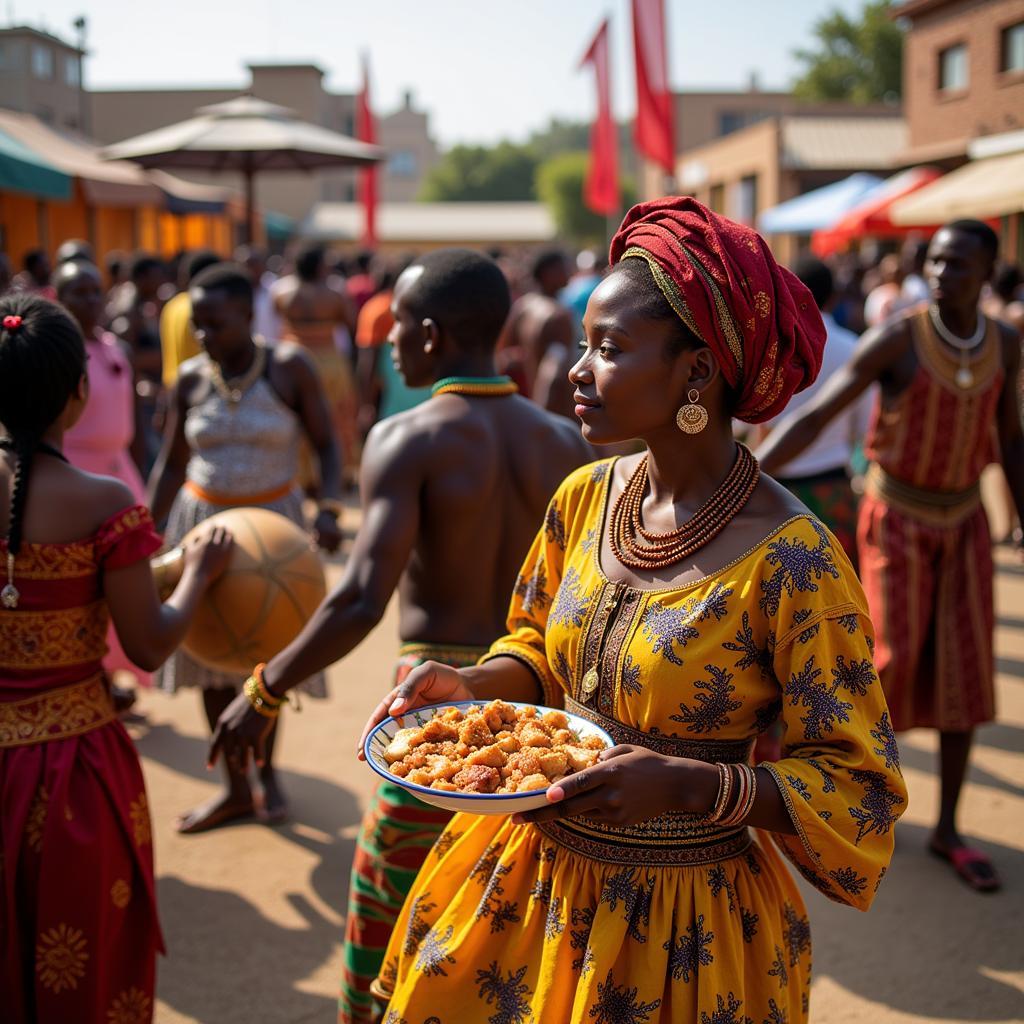African Child Meaning: More Than Just a Definition
The term “African child” evokes a myriad of images and emotions, often intertwined with preconceived notions and stereotypes. However, understanding the true meaning of being an African child goes beyond superficial interpretations. It delves into the heart of diverse cultures, resilient spirits, and the profound impact of history and heritage on a child’s upbringing across the African continent.
 Smiling African Child
Smiling African Child
Unpacking the Layers of Identity
Africa, a continent brimming with 54 distinct nations, defies simplistic categorization. Each country boasts its own unique tapestry of languages, traditions, and social structures, shaping the lives of children within their respective communities. To comprehend the meaning of being an African child, one must acknowledge this rich diversity, understanding that an Ethiopian child’s experience will differ greatly from that of a Senegalese or South African child.
For instance, in many rural communities across sub-Saharan Africa, children are deeply connected to the land. They grow up participating in agricultural activities, learning traditional farming methods passed down through generations. This fosters a strong sense of community, responsibility, and respect for nature’s cycles.
 African Children Playing Music
African Children Playing Music
The Power of Ubuntu: A Shared Humanity
Across the diverse cultures of Africa, a common thread unites them: the philosophy of “Ubuntu.” This Nguni Bantu term, meaning “humanity towards others,” emphasizes the interconnectedness of humanity. It teaches that an individual’s well-being is intrinsically linked to the well-being of the community.
This principle is deeply ingrained in African child-rearing practices. Children are raised to value community over individualism, cooperation over competition. They are taught to share, care for one another, and show respect for elders. Ubuntu instills a strong sense of belonging, empathy, and social responsibility.
Navigating Challenges, Embracing Opportunities
The lives of many African children are marked by challenges: poverty, limited access to quality education and healthcare, and the lingering effects of colonialism. However, amidst these adversities, their resilience shines through. They possess an indomitable spirit, a remarkable capacity for joy, and an unwavering belief in a brighter future.
Furthermore, the increasing access to technology and globalization is opening up new opportunities for African children. They are becoming more connected to the world, empowered to learn, innovate, and contribute to their communities in unprecedented ways.
More Than a Label: A Tapestry of Potential
To truly understand the meaning of “African child” is to recognize the individual behind the label. It is to appreciate their unique cultural heritage, acknowledge their struggles, celebrate their resilience, and empower them to reach their full potential.
It is to understand that being an African child is not a limitation, but rather a wellspring of strength, creativity, and hope for a brighter future – for Africa and for the world.
Conclusion
The meaning of “African child” extends far beyond a simple definition. It encompasses a tapestry of cultures, traditions, challenges, and triumphs. By embracing the diversity, resilience, and the profound sense of community that defines the African spirit, we can gain a deeper appreciation for the richness and complexity of what it truly means to be an African child.
Do you want to learn more about the diverse cultures and experiences of children across Africa? Contact us!
Phone Number: +255768904061
Email: kaka.mag@gmail.com
Address: Mbarali DC Mawindi, Kangaga, Tanzania.
We have a dedicated team available 24/7 to assist you.




